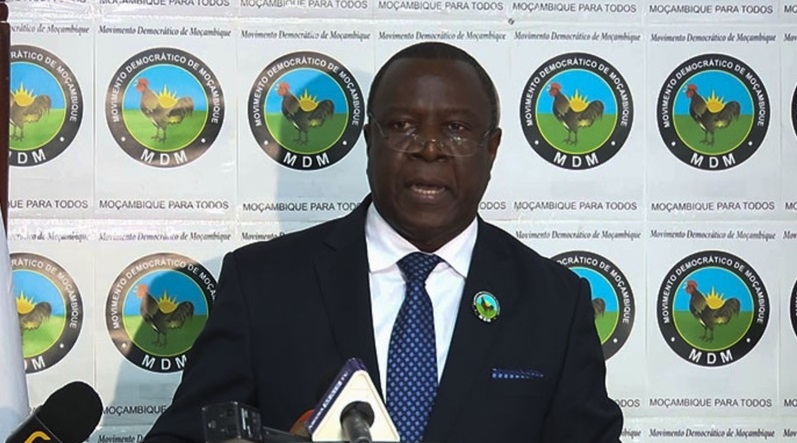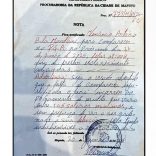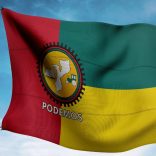Mozambique: Mondlane summoned by the Public Prosecutor's Office with a detention warning
Mozambique: MDM leader says CAD parties must explain process

FILE - For illustration purposes only [File photo: RTP]
The president of the Democratic Movement of Mozambique (MDM), Lutero Simango, said on Friday that the parties that make up the Democratic Alliance Coalition (CAD) must explain what led to their exclusion from the October general elections.
‘We need to know. There are already many questions. That’s why I challenge the parties in this coalition to appear publicly to explain to the Mozambican people what really happened. It’s very important,’ said Simango, leader of the country’s third largest party with a parliamentary seat, speaking to Lusa.
On Thursday, the Constitutional Council (CC) definitively excluded the CAD coalition, which supports politician Venâncio Mondlane’s presidential candidacy, from the general elections on 9 October.
In the ruling, in response to the appeal lodged by CAD over the exclusion of the candidacy previously decided by the National Electoral Commission (CNE), the CC declares the CNE’s decision of 9 May, which accepted the coalition’s registration, null and void due to irregularities in the registration process, considering it ‘not registered’.
‘I’m amazed at the silence of the coalition parties in this coalition (…). It’s very important that they come forward to inform us whether, in fact, what the ruling says about their legalisation corresponds to the truth or not. It’s very important because you can’t leave us to speculate all the time,’ said the MDM leader, who is also running for President of the Republic in these elections.
Even so, Simango criticised the outcome of this process involving the CAD, which supports politician Venâncio Mondlane’s candidacy for President of the Republic: ‘We are advocates of an inclusive process. If we want to build our multi-party democracy, it must be a participatory, inclusive, comprehensive process.’
That’s why he said that Mozambican democracy ‘loses’ with this decision.
‘It’s obvious, always, when one party is excluded. It happened to us in 2009, but it was [in] slightly different circumstances because we were excluded in the middle of the electoral campaign. In the second week of the electoral campaign, we learnt via the news that we were excluded from constituency processes. Imagine a party that organised itself to run at the national level,’ he insisted.
Lutero Simango, a current MDM MP, defended the need, demanded by various sectors of Mozambican society, to revise electoral legislation, ‘simplifying the processes’.
‘We need an electoral process with simplified procedures. There is a lot of paperwork that needs to be eliminated because, at the end of the day, elections are about mass participation, not only by voters but also by political actors,’ he said, criticising the role of the CC.
‘According to our laws, the CC comprises the two parties [Frelimo, in power, and Renamo, the largest opposition party] according to their parliamentary representation. And we’ve always questioned that. And occasionally, we get lumped together when the MDM is totally innocent in this or that way,’ he said.
With this decision, CAD—which brings together the PADRES, Palmo, Panade, Partonamo, PDNM, and PRD parties—was excluded from the legislative elections and those for governors and provincial assemblies. Still, it did not affect the presidential candidacy of Venâncio Mondlane, a former MP and former member of the Mozambican National Resistance (Renamo).
The CNE excluded CAD from the general elections because it did not fulfil the legal requirements, namely irregularities in the coalition’s registration and the parties that form it. At an earlier stage, the CNE had accepted the candidature, and the exclusion took place when the applications received were verified.
The CC confirmed that the CNE’s previous decision had been cancelled: ‘The Constitutional Council believes that the failure to notify the state entity [Ministry of Justice] of the coalition constitutes an invalidating irregularity’.
It also states that the parties that make up the CAD, ‘despite having presented the agreement of 27 April 2024, could not, as they claim, be registered by the CNE as a coalition for electoral purposes since the coalition did not exist legally to be able to produce the intended effects’, given that it was ‘not registered’.













Leave a Reply
Be the First to Comment!
You must be logged in to post a comment.
You must be logged in to post a comment.